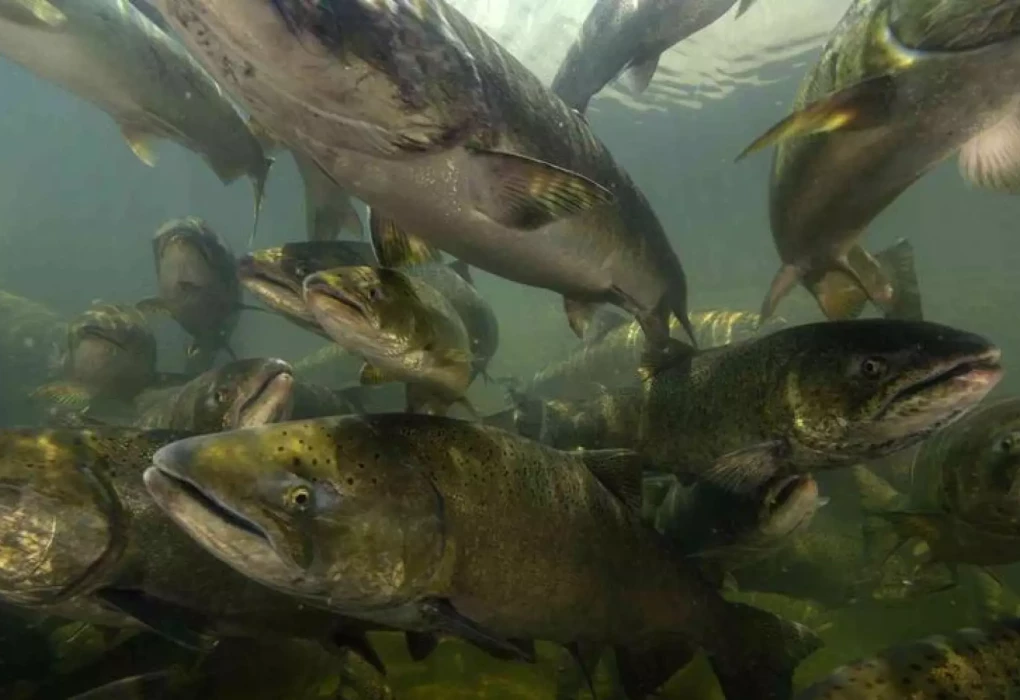Press Release: Survey Shows Only 17 Wild Spring Chinook Salmon observed in Oregon’s South Umpqua River
For Immediate Release, October 23, 2023
Contact:
Meg Townsend, Center for Biological Diversity, (971) 717-6409, mtownsend@biologicaldiversity.org
Stanley Petrowski, Umpqua Watersheds, (541) 825-3070, stanley@surcp.org
Mark Sherwood, Native Fish Society, (503) 344-4218, mark@nativefishsociety.org
Survey Shows Only 17 Wild Spring Chinook Salmon observed in Oregon’s South Umpqua River
Dismally Low Numbers Highlight Need for Federal Protections
PORTLAND, Ore.— The Oregon Department of Fish and Wildlife’s recent count of spring-run Chinook salmon returning to the South Umpqua River showed just 17 wild adult fish detected during snorkel surveys. This dismal return is 12% of the 10-year average of 139 fish observed in index counts and signals an urgent need for federal Endangered Species Act protections.
“It’s heartbreaking to learn how few wild spring Chinook are returning to their home waters in Oregon’s beloved South Umpqua River,” said Meg Townsend, freshwater attorney at the Center for Biological Diversity. “This is a shockingly low number, and this grim reality underscores just how important federal Endangered Species Act protections are. These spectacular spring-run salmon are on the brink of extinction, and they can’t wait any longer.”
In 2019 and 2022, the Center for Biological Diversity, Umpqua Watersheds and Native Fish Society petitioned the National Marine Fisheries Service to protect spring Chinook salmon in Oregon’s coastal rivers under the Endangered Species Act. In January the Service determined that the fish may warrant listing, and a decision was due in August.
Results of the department’s latest survey were released last week in response to a public records request. Historical records indicate that spring Chinook lived in numerous watersheds of the Oregon and Northern California coastal range, but the once-abundant spring Chinook runs in the Siuslaw, Coquille and many other coastal rivers in Oregon are now entirely gone.
“We fear that the South Umpqua springers will face a similar fate as the runs that once returned to other Oregon coastal rivers and return no more,” said Stanley Petrowski of Umpqua Watersheds. “They are blinking out before our eyes, and it would be shameful for the National Marine Fisheries Service to deny protections for these fish and allow business as usual in the South Umpqua and our coastal waters.”
Chinook salmon are anadromous, which means they return from the ocean to the freshwater streams where they were born to reproduce. The Oregon and California Chinook salmon populations contain both early and late-run variants, otherwise known as spring-run and fall-run Chinook salmon.
“Oregon’s spring Chinook salmon are keystone species in our rivers — fish that hold together the ecosystems that sustain us all,” says Mark Sherwood, executive director of Native Fish Society. “When these fish are on the brink of extinction, as they are in the South Umpqua River, it’s the strongest call to action — we must restore healthy and resilient watersheds for the fish and our communities. Leveraging the resources from protections under the Endangered Species Act is our last chance to revive abundant Chinook salmon along the Oregon coast.”
Spring-run Chinook salmon enter coastal rivers from the ocean in the spring and migrate upstream as they mature, holding in deep pools in rivers through the summer, and spawning in early fall in the upper reaches of watersheds. Fall-run Chinook enter the rivers in the fall and spawn shortly thereafter.
The fish in Oregon and northern California are threatened by depleted stream flows during critical periods in summer and fall because of logging, dams and water diversions. Other threats include habitat degradation and higher stream temperatures caused by logging and road building, pollution, channelization, harvest in commercial and sport fisheries, predation by invasive fish and climate change.
The Service is expected to make a decision on the listing petition in late 2023.


